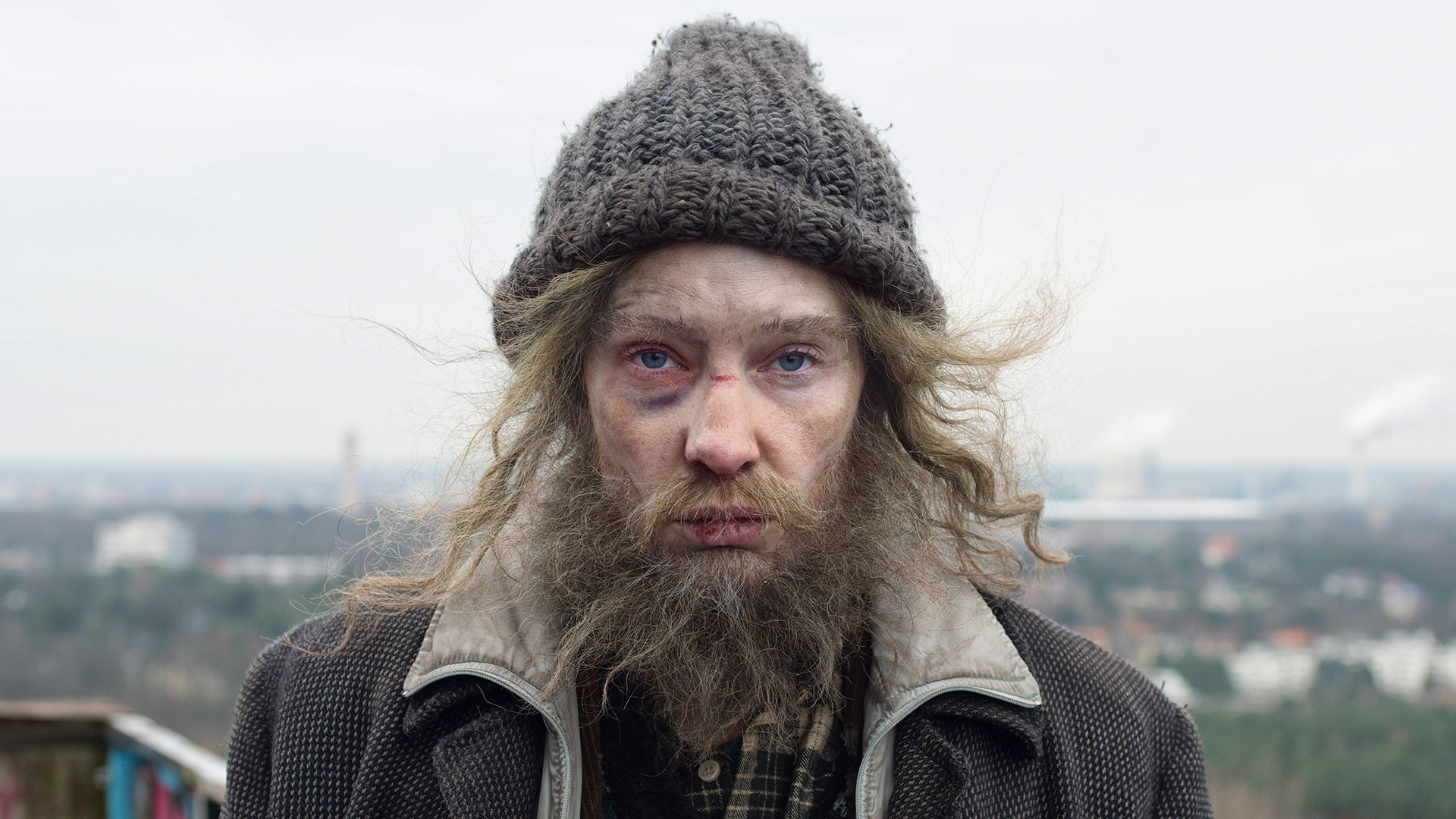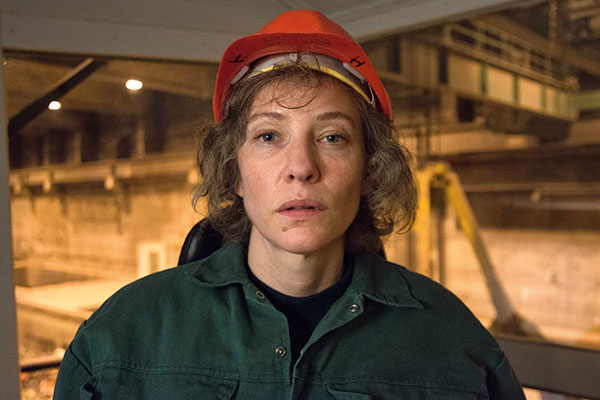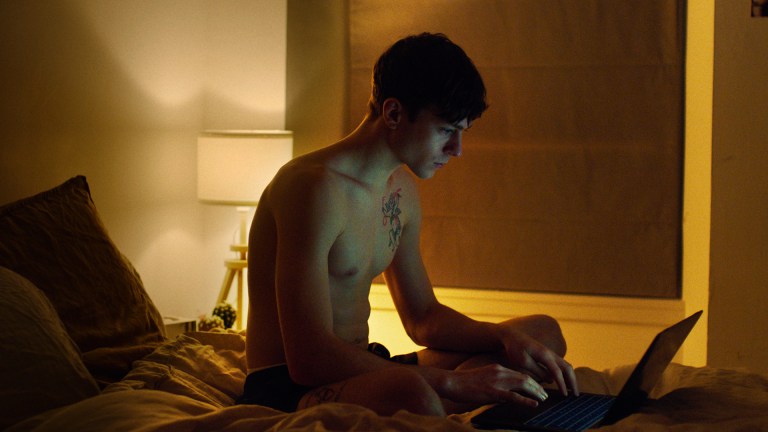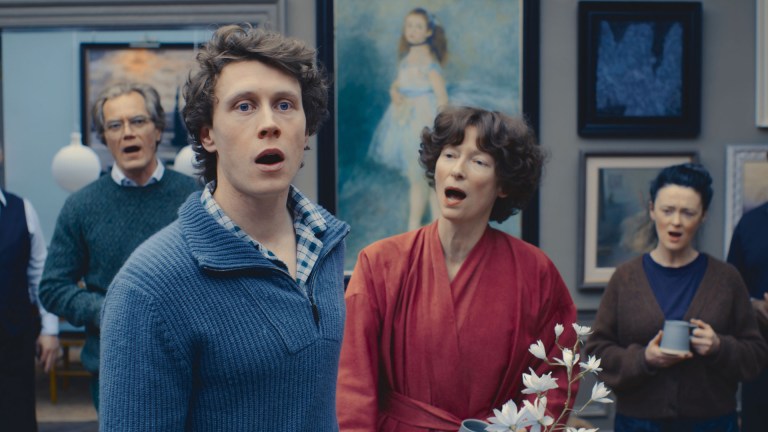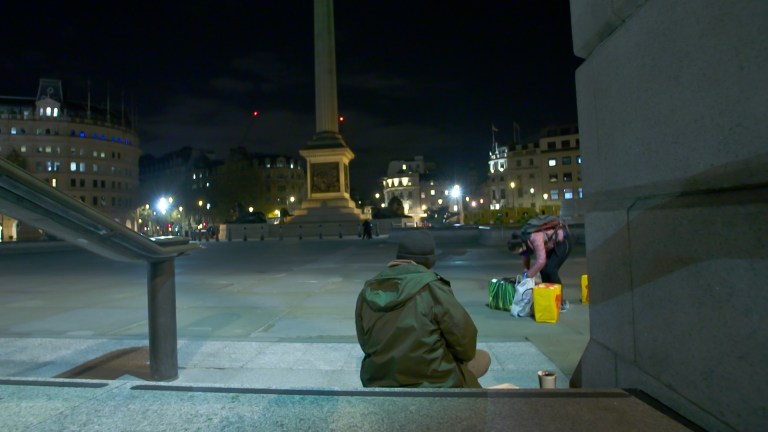A repeated motif throughout Manifesto is the assertion that nothing is original. This seems like an odd credo, because the film is, if nothing else, one of the most original of the year. In fact Julian Rosefeldt’s feature debut is so original, puzzlingly and brilliantly so, I’m not even sure it is a film. A high-concept art project might be more apt. Or a 90-minute thought experiment. Or a dizzyingly erudite essay on some of the major political and cultural theories of our age (OK, not so easy to fit on the poster, but accurate nonetheless).
Manifesto, to move on to specifics, is a series of scenes focused on different characters, all played by Cate Blanchett, reciting passages from celebrated manifestos, mainly about new artistic practices. So, here’s Blanchett as a crane operator in a vast refuse dump monologuing in a northern English accent the words of various avant garde architectural manifestos. Or here she is, as a stern and scary widow at some Mafioso-type funeral, delivering a proclamation written by 1920s Dada-ists as a grief-charged eulogy. There are 13 of these, with Blanchett commanding each one with steely authority (assisted at one point by a cutely uncanny mini-me puppet version of herself).
There’s little context or supporting information about the manifestos cited, but then I think that’s why the film is so compelling. For one, the present-day settings that Rosefeldt has concocted for these recitations (all filmed, with sumptuously high production values, in and around Berlin) lend these dusty manifestos an intriguing timeliness.

The first scene casts Blanchett as an elderly, bearded homeless man (with the accent of Groundskeeper Willie from The Simpsons) pushing a cart through the sprawling grounds of a deserted factory. It’s an image that speaks to the uncertainties of our age, an emblem of austerity and an era of encroaching automation that sees labour replaced entirely by IT. So, Blanchett’s reference to the “prevailing economic crisis” is the film’s attempt to reference the world around us, right? Well, no, because the quote belongs to one of a handful of Marxist thinkers cited, all of whom were writing more than 50 years ago. Under this murky smudge of a Berlin sun there’s nothing new, it seems.
Blanchett is superb… her performance is a triumph of versatility
Similarly, we see Blanchett as a thrusting stockbroker checking the markets on her computer, and in a swaggering American accent she hymns the beauty of speed, the virtues of aggressive action and the glory of war. It’s a speech that wouldn’t be out of place in The Wolf of Wall Street, but in fact these are some of the founding statements of intent behind Futurism, the revolutionary art movement that took hold in Italy before the First World War. What exactly is this association saying? That the money markets today are like an avant garde cultural practice? Or that they contain at their heart the impulse to destructive violence that some Futurists celebrated? I frankly don’t know, but the sense of provocation is bracing.
